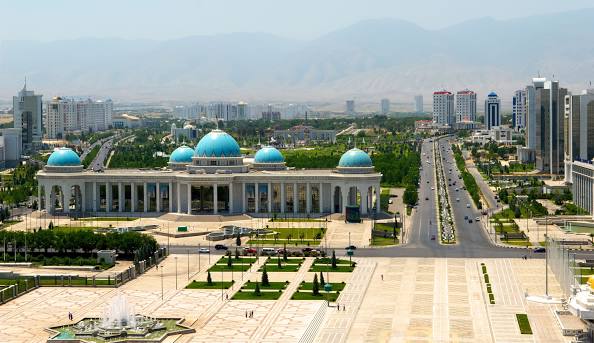Overview
Not long ago, the roadmap to wealth was simple: earn, invest, grow. But somewhere along the way, amid rising debt, shifting policies, and a quiet tax revolution, that map began to blur.
Governments, facing growing fiscal gaps and future liabilities, are rewriting the rules. The target isn’t just income anymore. It’s assets.
This marks a turning point. Wealth is no longer just built - it must be defended. Not with outdated tactics, but with sharper tools, deeper insight, and the foresight to act before the rules change.
That’s where Multipolitan’s Wealth Report 2025 - The Taxed Generation comes in. It’s not just a list of low-tax locales. It’s a forward-looking guide to the cities best positioned for long-term wealth preservation. Places with strong governance, digital infrastructure, climate resilience, and legal systems that respect capital. Because smart capital isn’t just moving where it’s treated best. It’s moving where it’s built to last.
Overview
Not long ago, the roadmap to wealth was simple: earn, invest, grow. But somewhere along the way, amid rising debt, shifting policies, and a quiet tax revolution, that map began to blur.
Governments, facing growing fiscal gaps and future liabilities, are rewriting the rules. The target isn’t just income anymore. It’s assets.
This marks a turning point. Wealth is no longer just built - it must be defended. Not with outdated tactics, but with sharper tools, deeper insight, and the foresight to act before the rules change.
That’s where Multipolitan’s Wealth Report 2025 - The Taxed Generation comes in. It’s not just a list of low-tax locales. It’s a forward-looking guide to the cities best positioned for long-term wealth preservation. Places with strong governance, digital infrastructure, climate resilience, and legal systems that respect capital. Because smart capital isn’t just moving where it’s treated best. It’s moving where it’s built to last.
Not long ago, the roadmap to wealth was simple: earn, invest, grow. But somewhere along the way, amid rising debt, shifting policies, and a quiet tax revolution, that map began to blur.
Governments, facing growing fiscal gaps and future liabilities, are rewriting the rules. The target isn’t just income anymore. It’s assets.
This marks a turning point. Wealth is no longer just built - it must be defended. Not with outdated tactics, but with sharper tools, deeper insight, and the foresight to act before the rules change.
That’s where Multipolitan’s Wealth Report 2025 - The Taxed Generation comes in. It’s not just a list of low-tax locales. It’s a forward-looking guide to the cities best positioned for long-term wealth preservation. Places with strong governance, digital infrastructure, climate resilience, and legal systems that respect capital. Because smart capital isn’t just moving where it’s treated best. It’s moving where it’s built to last.

Executive Summary
Higher taxation of wealth is emerging as a central policy theme across many economies. However, by understanding global trends and implementing adaptive strategies, wealthy families and their advisors can continue to prosper while contributing to societal needs. The following report provides an exploration of these dynamics, supported by data and expert insights into navigating a fiscally challenged future.
We've used Multipolitan's unique research to construct three primary indices:
- The Tax Friendly Cities Index 2025 examines tax environments across global cities.
- The Wealth Preservation Cities Index 2015–2025 looks back at the past decade, ranking the top 25 global cities that best preserved wealth in real terms, accounting for inflation, asset values, earnings, and governance.
- The Smart & Sustainable Cities Index (SSCI) 2025 ranks 25 cities expected to offer the strongest conditions for future wealth preservation, focusing on digital readiness, climate resilience, and political stability.
In addition to the rankings, the report features ten expert commentaries from top voices in tax and wealth strategy, including former leaders at EY, Deloitte, and BDO, international lawyers, and cross-border family office advisors. These commentaries explore how ultra-wealthy families are adapting to a high-tax future, staying compliant in an era of transparency, and weighing new opportunities across jurisdictions - from Singapore and Dubai to Portugal, Malta, and Cyprus. Together, they reveal a shift in mindset: wealth resilience now depends on smarter structures, jurisdictional agility, and long-term planning.
Executive Summary
Higher taxation of wealth is emerging as a central policy theme across many economies. However, by understanding global trends and implementing adaptive strategies, wealthy families and their advisors can continue to prosper while contributing to societal needs. The following report provides an exploration of these dynamics, supported by data and expert insights into navigating a fiscally challenged future.
We've used Multipolitan's unique research to construct three primary indices:
- The Tax Friendly Cities Index 2025 examines tax environments across global cities.
- The Wealth Preservation Cities Index 2015–2025 looks back at the past decade, ranking the top 25 global cities that best preserved wealth in real terms, accounting for inflation, asset values, earnings, and governance.
- The Smart & Sustainable Cities Index (SSCI) 2025 ranks 25 cities expected to offer the strongest conditions for future wealth preservation, focusing on digital readiness, climate resilience, and political stability.
In addition to the rankings, the report features ten expert commentaries from top voices in tax and wealth strategy, including former leaders at EY, Deloitte, and BDO, international lawyers, and cross-border family office advisors. These commentaries explore how ultra-wealthy families are adapting to a high-tax future, staying compliant in an era of transparency, and weighing new opportunities across jurisdictions - from Singapore and Dubai to Portugal, Malta, and Cyprus. Together, they reveal a shift in mindset: wealth resilience now depends on smarter structures, jurisdictional agility, and long-term planning.
Higher taxation of wealth is emerging as a central policy theme across many economies. However, by understanding global trends and implementing adaptive strategies, wealthy families and their advisors can continue to prosper while contributing to societal needs. The following report provides an exploration of these dynamics, supported by data and expert insights into navigating a fiscally challenged future.
We've used Multipolitan's unique research to construct three primary indices:
- The Tax Friendly Cities Index 2025 examines tax environments across global cities.
- The Wealth Preservation Cities Index 2015–2025 looks back at the past decade, ranking the top 25 global cities that best preserved wealth in real terms, accounting for inflation, asset values, earnings, and governance.
- The Smart & Sustainable Cities Index (SSCI) 2025 ranks 25 cities expected to offer the strongest conditions for future wealth preservation, focusing on digital readiness, climate resilience, and political stability.
In addition to the rankings, the report features ten expert commentaries from top voices in tax and wealth strategy, including former leaders at EY, Deloitte, and BDO, international lawyers, and cross-border family office advisors. These commentaries explore how ultra-wealthy families are adapting to a high-tax future, staying compliant in an era of transparency, and weighing new opportunities across jurisdictions - from Singapore and Dubai to Portugal, Malta, and Cyprus. Together, they reveal a shift in mindset: wealth resilience now depends on smarter structures, jurisdictional agility, and long-term planning.

Key Takeaways
As the world recalibrates in response to rising debt, political shifts, and climate risks, global cities are no longer just places to live or invest. They are strategic anchors for preserving and future-proofing wealth. This report maps where capital is safest today and where it is most likely to endure tomorrow.
Tax Friendly Cities Index 2025
We asked: Where does wealth face the fewest frictions? To answer this, we cut through rhetoric and focused on real-world outcomes, analyzing which global cities offer the most favourable tax environments for high-net-worth individuals, balancing low effective rates, the broader tax environment, and regulatory stability.
#1 - Abu Dhabi: Ranks first, combining tax efficiency with robust legal structures. Abu Dhabi’s property-related fees, such as transfer fee and municipality fee, which can be deemed as de facto property tax, are lower than Dubai’s.
#2 - Dubai: Ranks a close second, offering a compelling trifecta: zero personal income tax, strategic global connectivity, and one of the strongest treaty networks in the region - ideal for internationally mobile wealth.
#3 - Singapore: Secures third place. While it lacks the ultra-low headline tax rates of the UAE, it compensates with fiscal prudence, legal robustness, and governance standards that consistently rank among the world’s best. A jurisdiction defined less by tax perks, more by enduring economic sense.
Assessment based on Statutory tax rates, double tax treaty access (DTATs), and governance quality. These rankings reflect more than low tax rates. They measure fiscal intelligence through effective tax structures, treaty access, and governance confidence.
The Wealth Preservation Cities Index 2015–2025
We asked: Where has wealth actually been safe through a turbulent decade? To answer this, we looked beyond the hype and focused on hard data, analyzing which global cities have truly preserved and grown wealth despite economic and geopolitical shocks.
#1 - Zug: Currency stability and consistent governance make it a long-standing wealth hub.
#2 - Hong Kong: Despite recent political challenges, its capital markets and financial infrastructure remain resilient.
#3 - Basel: A conservative Swiss stronghold with trusted institutions and macroeconomic stability.
#4 - Singapore: The only Asian city to consistently rank across all indices, thanks to its regulatory clarity and economic strength.
Assessment based on GDP per capita, exchange rate volatility, inflation, effective tax rates, and governance quality, applied at the country level, with a city-level analysis accounting for property values, salary, and financing opportunities, and city-level quality of life. These cities didn’t just survive the shocks of the past decade. They preserved real purchasing power and delivered long-term stability when it counted.
The Smart & Sustainable Cities Index (SSCI) 2025
The next safe haven may not be a vault or a fund. It might be a city. As climate risk, technological change, and political uncertainty reshape the world, these cities offer a blueprint for long-term resilience.
#1 - Wellington: Well-governed, politically stable city built to withstand the climate challenges of tomorrow.
#2 - Copenhagen: Technologically advanced, environmentally prepared, and institutionally stable.
#3 - Singapore: The only global financial center in the top five, showing that economic development and sustainability can coexist.
Assessment based on Climate Resilience (50%), Digital Readiness (25%), Political Stability (25%). Together, these factors define the cities best positioned to protect wealth in an unpredictable future. The next decade will reward those who think beyond tax rates and invest in cities built for continuity, clarity, and climate resilience.
Key Takeaways
As the world recalibrates in response to rising debt, political shifts, and climate risks, global cities are no longer just places to live or invest. They are strategic anchors for preserving and future-proofing wealth. This report maps where capital is safest today and where it is most likely to endure tomorrow.
Tax Friendly Cities Index 2025
We asked: Where does wealth face the fewest frictions? To answer this, we cut through rhetoric and focused on real-world outcomes, analyzing which global cities offer the most favourable tax environments for high-net-worth individuals, balancing low effective rates, the broader tax environment, and regulatory stability.
#1 - Abu Dhabi: Ranks first, combining tax efficiency with robust legal structures. Abu Dhabi’s property-related fees, such as transfer fee and municipality fee, which can be deemed as de facto property tax, are lower than Dubai’s.
#2 - Dubai: Ranks a close second, offering a compelling trifecta: zero personal income tax, strategic global connectivity, and one of the strongest treaty networks in the region - ideal for internationally mobile wealth.
#3 - Singapore: Secures third place. While it lacks the ultra-low headline tax rates of the UAE, it compensates with fiscal prudence, legal robustness, and governance standards that consistently rank among the world’s best. A jurisdiction defined less by tax perks, more by enduring economic sense.
Assessment based on Statutory tax rates, double tax treaty access (DTATs), and governance quality. These rankings reflect more than low tax rates. They measure fiscal intelligence through effective tax structures, treaty access, and governance confidence.
The Wealth Preservation Cities Index 2015–2025
We asked: Where has wealth actually been safe through a turbulent decade? To answer this, we looked beyond the hype and focused on hard data, analyzing which global cities have truly preserved and grown wealth despite economic and geopolitical shocks.
#1 - Zug: Currency stability and consistent governance make it a long-standing wealth hub.
#2 - Hong Kong: Despite recent political challenges, its capital markets and financial infrastructure remain resilient.
#3 - Basel: A conservative Swiss stronghold with trusted institutions and macroeconomic stability.
#4 - Singapore: The only Asian city to consistently rank across all indices, thanks to its regulatory clarity and economic strength.
Assessment based on GDP per capita, exchange rate volatility, inflation, effective tax rates, and governance quality, applied at the country level, with a city-level analysis accounting for property values, salary, and financing opportunities, and city-level quality of life. These cities didn’t just survive the shocks of the past decade. They preserved real purchasing power and delivered long-term stability when it counted.
The Smart & Sustainable Cities Index (SSCI) 2025
The next safe haven may not be a vault or a fund. It might be a city. As climate risk, technological change, and political uncertainty reshape the world, these cities offer a blueprint for long-term resilience.
#1 - Wellington: Well-governed, politically stable city built to withstand the climate challenges of tomorrow.
#2 - Copenhagen: Technologically advanced, environmentally prepared, and institutionally stable.
#3 - Singapore: The only global financial center in the top five, showing that economic development and sustainability can coexist.
Assessment based on Climate Resilience (50%), Digital Readiness (25%), Political Stability (25%). Together, these factors define the cities best positioned to protect wealth in an unpredictable future. The next decade will reward those who think beyond tax rates and invest in cities built for continuity, clarity, and climate resilience.
As the world recalibrates in response to rising debt, political shifts, and climate risks, global cities are no longer just places to live or invest. They are strategic anchors for preserving and future-proofing wealth. This report maps where capital is safest today and where it is most likely to endure tomorrow.
Tax Friendly Cities Index 2025
We asked: Where does wealth face the fewest frictions? To answer this, we cut through rhetoric and focused on real-world outcomes, analyzing which global cities offer the most favourable tax environments for high-net-worth individuals, balancing low effective rates, the broader tax environment, and regulatory stability.
#1 - Abu Dhabi: Ranks first, combining tax efficiency with robust legal structures. Abu Dhabi’s property-related fees, such as transfer fee and municipality fee, which can be deemed as de facto property tax, are lower than Dubai’s.
#2 - Dubai: Ranks a close second, offering a compelling trifecta: zero personal income tax, strategic global connectivity, and one of the strongest treaty networks in the region - ideal for internationally mobile wealth.
#3 - Singapore: Secures third place. While it lacks the ultra-low headline tax rates of the UAE, it compensates with fiscal prudence, legal robustness, and governance standards that consistently rank among the world’s best. A jurisdiction defined less by tax perks, more by enduring economic sense.
Assessment based on Statutory tax rates, double tax treaty access (DTATs), and governance quality. These rankings reflect more than low tax rates. They measure fiscal intelligence through effective tax structures, treaty access, and governance confidence.
The Wealth Preservation Cities Index 2015–2025
We asked: Where has wealth actually been safe through a turbulent decade? To answer this, we looked beyond the hype and focused on hard data, analyzing which global cities have truly preserved and grown wealth despite economic and geopolitical shocks.
#1 - Zug: Currency stability and consistent governance make it a long-standing wealth hub.
#2 - Hong Kong: Despite recent political challenges, its capital markets and financial infrastructure remain resilient.
#3 - Basel: A conservative Swiss stronghold with trusted institutions and macroeconomic stability.
#4 - Singapore: The only Asian city to consistently rank across all indices, thanks to its regulatory clarity and economic strength.
Assessment based on GDP per capita, exchange rate volatility, inflation, effective tax rates, and governance quality, applied at the country level, with a city-level analysis accounting for property values, salary, and financing opportunities, and city-level quality of life. These cities didn’t just survive the shocks of the past decade. They preserved real purchasing power and delivered long-term stability when it counted.
The Smart & Sustainable Cities Index (SSCI) 2025
The next safe haven may not be a vault or a fund. It might be a city. As climate risk, technological change, and political uncertainty reshape the world, these cities offer a blueprint for long-term resilience.
#1 - Wellington: Well-governed, politically stable city built to withstand the climate challenges of tomorrow.
#2 - Copenhagen: Technologically advanced, environmentally prepared, and institutionally stable.
#3 - Singapore: The only global financial center in the top five, showing that economic development and sustainability can coexist.
Assessment based on Climate Resilience (50%), Digital Readiness (25%), Political Stability (25%). Together, these factors define the cities best positioned to protect wealth in an unpredictable future. The next decade will reward those who think beyond tax rates and invest in cities built for continuity, clarity, and climate resilience.

Contributors















Articles